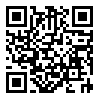دوشنبه 13 بهمن 1404
[Archive]
دوره 19، شماره 5 - ( 3-1400 )
جلد 19 شماره 5 صفحات 295-295 |
برگشت به فهرست نسخه ها
Download citation:
BibTeX | RIS | EndNote | Medlars | ProCite | Reference Manager | RefWorks
Send citation to:



BibTeX | RIS | EndNote | Medlars | ProCite | Reference Manager | RefWorks
Send citation to:
Namavar Jahromi B, Zeyghami Sh, Parsanezhad ME, Ghaemmaghami P, Zarei A, Azizi Kutenaee M, et al . P-128 Determining an optimal cut-off value for follicle-stimulating hormone to predict microsurgical testicular sperm extraction outcome in patients with non-obstructive azoospermia. IJRM 2021; 19 (5) :295-295
URL: http://ijrm.ir/article-1-3038-fa.html
URL: http://ijrm.ir/article-1-3038-fa.html
P-128 Determining an optimal cut-off value for follicle-stimulating hormone to predict microsurgical testicular sperm extraction outcome in patients with non-obstructive azoospermia. International Journal of Reproductive BioMedicine. 1400; 19 (5) :295-295
چکیده: (579 مشاهده)
Background: Determining the success of sperm retrieval for infertile men before using assisted reproductive technologies can decrease the costs. Using endocrine markers, as an inexpensive and non-invasive method is considered to be a clinically suitable marker in assessment of infertile men.
Objective: To determine the optimal cut-off value for follicle stimulating hormone (FSH) to predict the outcome of microsurgical testicular sperm extraction (micro-TESE) in patients with nonobstructive azoospermia (NOA).
Materials and Methods: We included a total number of 180 patients with NOA. The serum level of FSH was determined and all the subjects underwent micro-TESE. We determined the optimal cut-off value for FSH and assessed whether the test could be effectively used as a successful predictor of sperm retrieval by calculating the receiver operating characteristic area under the curve.
Results: Overall, we included a total number of 171 patients with mean age of 34.3 ± 8.6 yr. The micro-TESE was considered to be successful in 79 (43.8%) while it failed in 92 (56.2%) patients. We found that the mean level of serum FSH was significantly higher in group those with failed micro-TEST compared to successful group (P < 0.001). The cut-off value for FSH was calculated to be 14.6 mIU/mL to predictive the outcome of micro-TESE with a sensitivity of 83.5% [73.5%-90.9%] and a specificity of 80.3% [69.5%-88.5%]. At this value, the other parameters were calculated to be PPV, 81.5%; NPV, 82.4; LR+, 4.23; and LR-, 0.21.
Conclusion: The results of the current study indicate that FSH plasma levels above 14.6 mIU/mL can be considered to be the failure predictor of the micro-TESE in NOA patients.
Objective: To determine the optimal cut-off value for follicle stimulating hormone (FSH) to predict the outcome of microsurgical testicular sperm extraction (micro-TESE) in patients with nonobstructive azoospermia (NOA).
Materials and Methods: We included a total number of 180 patients with NOA. The serum level of FSH was determined and all the subjects underwent micro-TESE. We determined the optimal cut-off value for FSH and assessed whether the test could be effectively used as a successful predictor of sperm retrieval by calculating the receiver operating characteristic area under the curve.
Results: Overall, we included a total number of 171 patients with mean age of 34.3 ± 8.6 yr. The micro-TESE was considered to be successful in 79 (43.8%) while it failed in 92 (56.2%) patients. We found that the mean level of serum FSH was significantly higher in group those with failed micro-TEST compared to successful group (P < 0.001). The cut-off value for FSH was calculated to be 14.6 mIU/mL to predictive the outcome of micro-TESE with a sensitivity of 83.5% [73.5%-90.9%] and a specificity of 80.3% [69.5%-88.5%]. At this value, the other parameters were calculated to be PPV, 81.5%; NPV, 82.4; LR+, 4.23; and LR-, 0.21.
Conclusion: The results of the current study indicate that FSH plasma levels above 14.6 mIU/mL can be considered to be the failure predictor of the micro-TESE in NOA patients.
نوع مطالعه: Congress Abstract |
| بازنشر اطلاعات | |
 |
این مقاله تحت شرایط Creative Commons Attribution-NonCommercial 4.0 International License قابل بازنشر است. |

